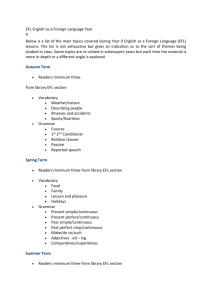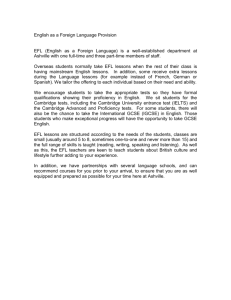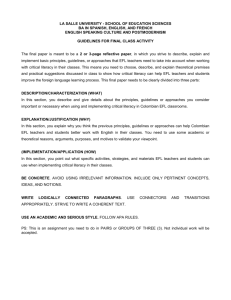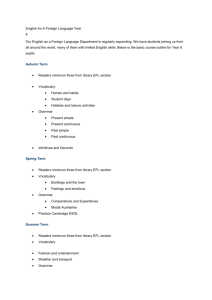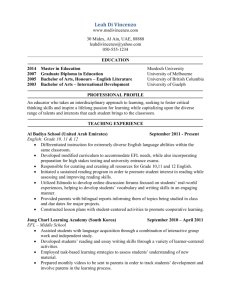WANG, LI-CHEN, Ph.D., December 2007 ... NO TALKING: PEER TALK IN A MANDARIN─ENGLISH BILINGUAL
advertisement
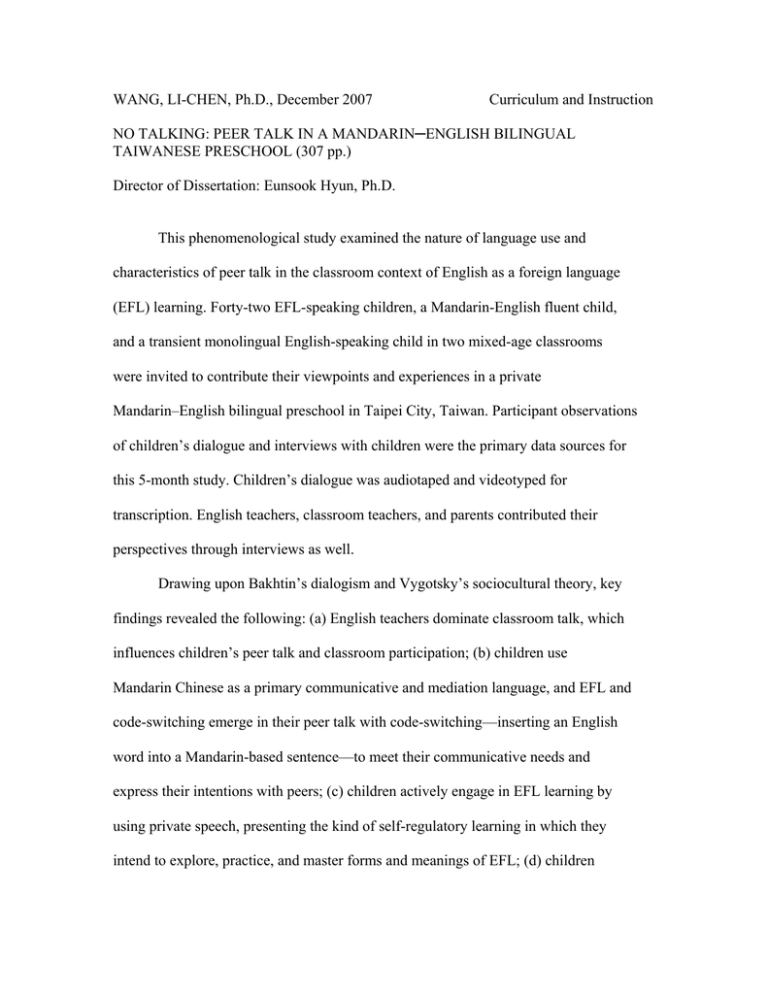
WANG, LI-CHEN, Ph.D., December 2007 Curriculum and Instruction NO TALKING: PEER TALK IN A MANDARIN─ENGLISH BILINGUAL TAIWANESE PRESCHOOL (307 pp.) Director of Dissertation: Eunsook Hyun, Ph.D. This phenomenological study examined the nature of language use and characteristics of peer talk in the classroom context of English as a foreign language (EFL) learning. Forty-two EFL-speaking children, a Mandarin-English fluent child, and a transient monolingual English-speaking child in two mixed-age classrooms were invited to contribute their viewpoints and experiences in a private Mandarin–English bilingual preschool in Taipei City, Taiwan. Participant observations of children’s dialogue and interviews with children were the primary data sources for this 5-month study. Children’s dialogue was audiotaped and videotyped for transcription. English teachers, classroom teachers, and parents contributed their perspectives through interviews as well. Drawing upon Bakhtin’s dialogism and Vygotsky’s sociocultural theory, key findings revealed the following: (a) English teachers dominate classroom talk, which influences children’s peer talk and classroom participation; (b) children use Mandarin Chinese as a primary communicative and mediation language, and EFL and code-switching emerge in their peer talk with code-switching—inserting an English word into a Mandarin-based sentence—to meet their communicative needs and express their intentions with peers; (c) children actively engage in EFL learning by using private speech, presenting the kind of self-regulatory learning in which they intend to explore, practice, and master forms and meanings of EFL; (d) children actively provide peer tutoring in the classroom context of EFL learning with experienced learners acting as peer experts who support peers’ EFL learning; and (e) language play creates enjoyment and verbal participation opportunities for children in the EFL classrooms, offering a way for the children to resist authoritative voices, tease their peers, and use EFL as a living language. Pedagogical implications include the following: supporting children with use of their linguistic sources for learning and communication, recognizing children’s learning characteristics and competence, enhancing peer-mediated learning, using language play and humor as pedagogical tools, incorporating children’s interests and specific peer culture into EFL curriculum, promoting deep learning experiences and peer collaborative dialogue within the EFL classrooms.

